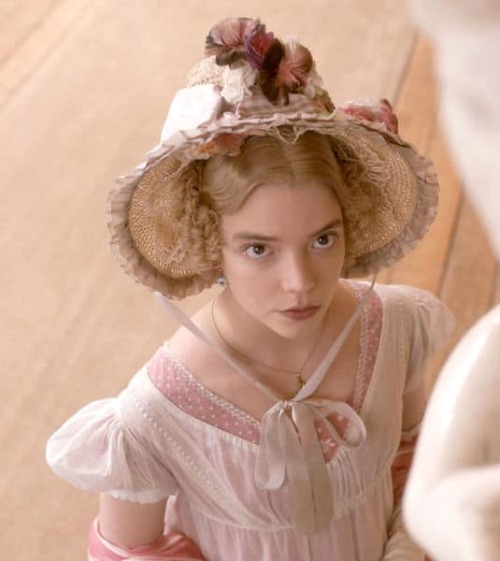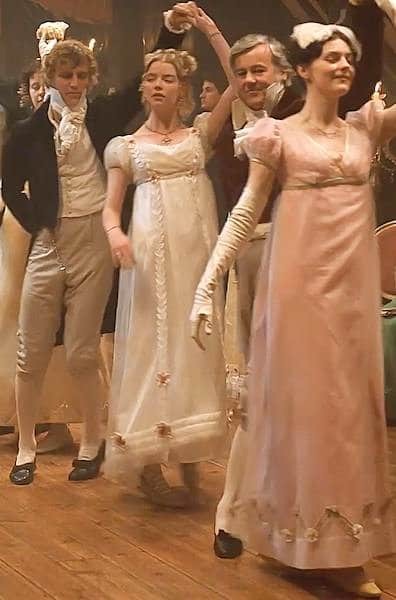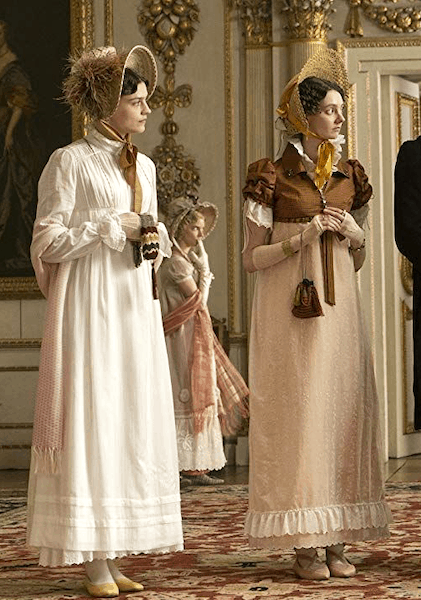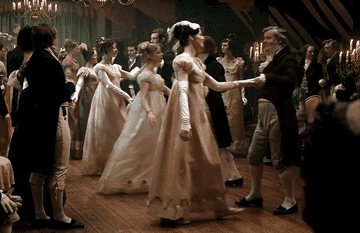After watching the recent "POLDARK" television series for the past few years and reading the commentaries on these episodes and especially two particular characters - Demelza Carne Poldark and Elizabeth Chynoweth Poldark Warleggan - I have come to a disturbing conclusion. Despite the advent of the feminist movement, we still live a sexist society. Because our society remains sexist to this day, many people - women included - tend to view female fictional characters from a sexist view. This was especially apparent with the opinions of the two major female characters in "POLDARK", as demonstrated in articles like this.
I have noticed that producer Debbie Horsfield and many of the series' fans and critics seemed hellbent upon viewing both Demelza and Elizabeth through some Whore/Madonna trope. The situation regarding Demelza and Elizabeth strikes me as rather ironic. In many works of fiction and sometimes in real life, women of working-class backgrounds are usually perceived as sexually permissive or a "whore". And women from a middle-class or upper-class background are usually perceived as virtuous or "the Madonna". Not only do a good number of men apply this type of categorization upon women, other women do as well.
What made this trope ironic in "POLDARK"? The low-born Demelza - a miner's daughter who became main protagonist Ross Polark's servant and later, wife - has been regarded by many fans as virtuous or . . . "the Madonna". In contrast, Elizabeth Chynoweth, a landowner's daughter, has been more less labeled as a "whore" by said fans. Elizabeth, who had originally been courted by Ross before he left to serve in the British Army during the American Revolution, ended up marrying his cousin Francis Poldark. She later married Ross' neighbor and nemesis, George Warleggan after Francis' death.
I suspect that if Demelza had not married Ross and become the main female protagonist, she would not have become so highly regarded by the fans. After all, she was low born. And she had sex with Ross, while serving his household as a kitchen maid. Right before their marriage. Ross ended up coercing her into marrying him in order to put a stop to the rumors about them. But I believe what really saved Demelza from being labeled "the whore" by readers and television viewers was the presence of the one woman she regarded as her nemesis - namely her cousin-in-law and Ross' first love, Elizabeth Poldark Warleggan née Chynoweth. In the fans' eyes, Elizabeth had made the mistake of rejecting Ross upon his return from the American Revolutionary War and marrying his cousin Francis. The literary Elizabeth honestly thought she had loved Francis and felt that Ross would not be the right husband for her. The recent series depicted Elizabeth as a woman torn by her feelings for Ross and slightly coerced into marrying Francis by her mother. To make matters worse, following Francis' death, Elizabeth had married Ross' nemesis, banker George Warleggan for his money. She needed his money to save the Trenwith estate for hers and Francis' son, Geoffrey Charles.
I have a confession. Originally, I had believed this sexist view of both women stemmed from Demelza being the saga's main female protagonist and Elizabeth's rejection of Ross and her decisions to marry Francis and George. While Demelza was portrayed as this near perfect woman, especially in the series by show runner Debbie Horsfield; she was constantly praised by fans and critics for not only being "ideal", but also the "ideal" mate for Ross. Elizabeth was portrayed with a more negative tone. As I had stated earlier, Debbie Horsfield changed the nature of her reason for rejecting Ross and marrying Francis. Horsfield used Demelza's class origin as some kind of "Cinderella" fairy tale. Elizabeth was subtlety criticized for being a member of the upper-class and marrying Francis to maintain the lifestyle she was accustomed to. She was also portrayed as a woman who could not make up her mind about whom she wanted to marry. And then came that night of May 9, 1793.
Any fan of Winston Graham's novels or the two television adaptations of his saga knows what happened that month - Ross and Elizabeth conceived his third child and her second - Valentine Warleggan. For years, many fans have asserted that Valentine's conception was an act of consensual sex between the pair. The 1975-1977 series had portrayed Ross raping Elizabeth before pretending that rape never happened. The 2015-2019 series was worse. It had Ross assaulting Elizabeth and on the verge of raping her. Before he could, she consented to sex at the last moment, transforming their encounter into a "rape fantasy". Only Winston Graham's 1953 novel, "Warleggan", portrayed the encounter as rape. The author condemned Ross' act for the rest of his literary series - something that many fans refuse to acknowledge.
Yet, even before the rape, Horsfield did her level best to set up sympathy toward Demelza and condemn Elizabeth at the same time. As in the novels, Ross had spent a good deal of time at Trenwith, helping the recently widowed Elizabeth deal with estate debts. But in the series, Demelza, her cousin-in-law Verity Poldark Blamey and the audience blamed Elizabeth instead of Ross; who seemed hellbent upon enjoying Elizabeth's company as much as possible. Horsfield even added a scene in which Demelza made a snarky, yet hostile comment about Ross' time at Trenwith that clearly blamed Elizabeth. And fans, to my utter disgust, cheered this moment of misogyny. Horsfield included another scene after the rape that featured an encounter between Demelza and Elizabeth in the woods (this also never happened in the novel) in which the former accused the latter of having a sexually illicit encounter with Ross. Again, I found myself disgusted by this obvious attempt by Horsfield to demonize Elizabeth for something that was never her fault. I felt equally disgusted by the fans' cheers over Demelza's words.
After the series' adaptation of "Warleggan", I thought I would see the last of this less than ambiguous handling of both Demelza and Elizabeth. I did not. Horsfield provided other examples of idealizing Demelza's character and vilifying Elizabeth's. In the novels that followed "Warleggan", both women had committed major mistakes.
Elizabeth had supported her second husband George Warleggan's attempt to force a marriage between her cousin Morwenna Chynoweth and a highborn vicar from Truro, the Reverend Osbourne Whitworth, who proved to be an abusive husband. Mind you, Elizabeth was not solely to blame for this marriage. One, it was George's idea and he was the one who finally coerced Morwenna into marrying Osbourne - at least in the series (Morwenna's mother was the one who finally coerced her in the novel). But Elizabeth did support his action. It was probably the worst thing she truly ever did. Unfortunately, Horsfield felt this need to portray Elizabeth as a cold and scheming woman, who proved to be initially cold to her younger son Valentine. This never happened in the novel. Worse, Horsfield had transformed Elizabeth into both an morphine addict and alcoholic as a means to express the struggles she suffered as George's wife. Again . . . this never happened in the novel. Why Horsfield thought this was necessary. I have no idea. Elizabeth had found George's paranoia over Ross rather stressful, but not to the point of her becoming an addict.
On the other hand, Horsfield had went out of her way to portray Demelza as this perfect lady, who sang whenever the screenplay allowed actress Eleanor Tomlinson to display her singing ability. There were moments of Demelza racing across the countryside on horseback like some Harlequin Romance heroine in an effort to save her younger brother Drake Carne from being set upon by George's bullies. Actually, some locals came to Drake's rescue in the novel. There was also the matter of Demelza's initial refusal to support her brother Drake romance with Morwenna. Demelza used the differences in Drake and Morwenna's classes as an excuse for her lack of support, claiming she did not want to see both of them suffer in an unhappy marriage. I found this rather hypocritical, considering Demelza had married outside of her class. The series had went out of its way to avoid Demelza's unwillingness to contemplate the idea of Elizabeth's cousin as her future sister-in-law. Although she ended up supporting Drake and Morwenna's relationship in the end, Demelza continued to wish her brother had married a woman of her choice instead of Morwenna in one of Winston Graham's later novels - despite the happy marriage the pair managed to create. The one true terrible act that Demelza had committed was her brief affair with Royal Navy officer Hugh Armitage. Actually, they only had sex once. But once was enough, as far as I am concerned. Many viewers had excused Demelza's infidelity as an act of bad writing from Graham or Horsfield. One blogger used Demelza's rushed romance/marriage to Ross as excuse for her to experience an actual romance with someone of her age. And there were those who used Ross' infidelity - namely the "eye for an eye" - as an excuse. Frankly, revenge sex has never struck me as a good excuse to cheat on one's spouse, unless he was a serial abuser like the Justin LaMotte character from the "NORTH AND SOUTH" series . . . or Osbourne Whitworth. Ross may have been guilty of raping Elizabeth, but I do not recall him ever abusing Demelza in that manner. However, I do not recall anyone slut shaming Demelza for her affair with Hugh.
I might as well be frank. Neither Demelza or Elizabeth were perfect. And neither were monsters. Both women possessed flaws and virtues. And yet . . . the fans and writer Debbie Horsfield seemed incapable of accepting both as complex women. Fans had behaved as if Demelza was the greatest thing since the invention of the wheel. They regarded Elizabeth as "the Whore of Babylon" or worse, a weak and manipulative woman. They seem incapable of facing Demelza’s faults - other than her naivety in late Season One. And they seem unwilling to acknowledge Elizabeth’s virtues. Horsfield's writing for the series did a lot to support their reactions.
I find myself wondering if this inability to accept the ambiguity of both women stemmed from a refusal to acknowledge the idea of Ross Poldark harboring love for two different women at the same time. I do not know. Perhaps this scenario went against their ideals of "true love", marriage and a Harlequin Romance-style story. The unfortunate thing is that producers like Debbie Horsfield of the current series and the producers of the 1970s series - Anthony Coburn and Morris Barry - had seemed more than willing to constantly feed this "Whore/Madonna" mentality regarding the two characters.

.GIF)












































